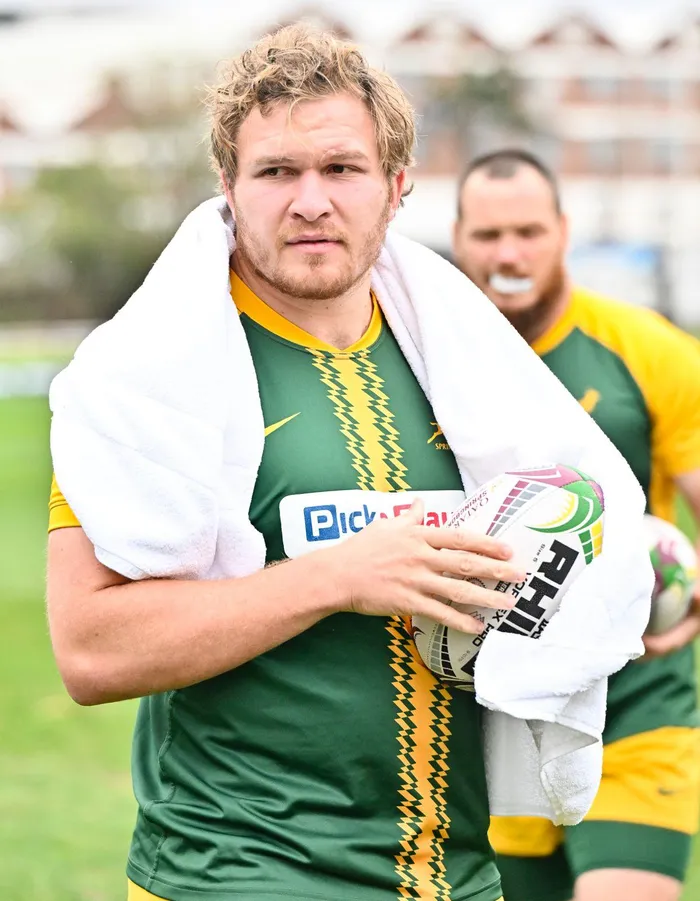URC dropped the ball during Jan-Hendrik Wessels disciplinary farce
COMMENT

Jan-Hendrik Wessels has been banned for nine matches after being cited for foul play.
Image: BackpagePix
The United Rugby Championship’s disciplinary process has once again shown how flawed and inconsistent it really is.
The recent case involving Bulls front rower Jan-Hendrik Wessels and Connacht’s Josh Murphy has left many rugby fans shaking their heads in disbelief at the outcome of both cases.
Wessels was handed a nine-week ban for allegedly grabbing Murphy by the genitals — yet there was no clear video evidence proving that he did it. On the other hand, there is clear footage of Murphy striking Wessels in the head, twice, which is one of the most serious offences in rugby.
Despite that, Murphy walked away with no punishment at all and had his red card rescinded after receiving his marching orders last Friday from referee Mike Adamson.
The URC disciplinary committee’s decision sends a terrible message. It basically says that it’s acceptable to hit someone in the head if you feel you were provoked — even if there’s no proof.
However, that is not how the laws of the game work. Retaliation is not tolerated on the field no matter what was done to you, and we’ve seen plenty of penalties reversed for retaliation. Striking another player, especially to the head, is a straight red-card offence under any circumstances.
If the disciplinary system can pardon a clear act of violence, saying it didn’t meet the red card threshold, while punishing someone based on circumstantial evidence, then the process is broken. It’s supposed to be about fairness, consistency, and evidence. Instead, it has turned into a guessing game where emotion seems to outweigh facts.
Rugby and its traditions always prided itself on respect and discipline. Players are taught from a young age to stay in control, no matter what happens on the field.
But when a judicial panel appointed by a governing body starts setting double standards when it comes to dishing out punishment, that principle goes out the window. What kind of message does it send to young players when they see one player banned for weeks without proof, and another getting off scot-free after striking someone in the head?
The URC’s disciplinary process needs serious fixing, especially against South African players.
Committees must base their decisions on what can be proven. They also need to apply the laws of the game consistently, no matter the team or the player involved.
At the moment, it feels like players are being punished or protected depending on which jersey they wear or how the story is told. That’s not justice.
If rugby wants to keep its integrity and protect players, the URC needs to take a long, hard look at how it runs its disciplinary system. Right now, it’s not protecting the game — it’s embarrassing it.
Related Topics: